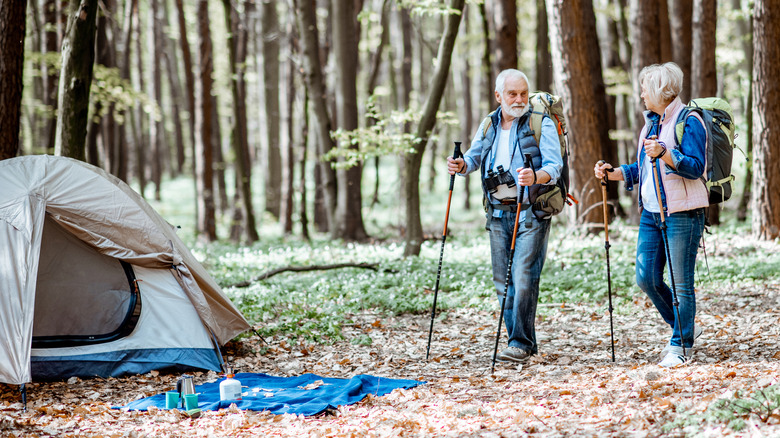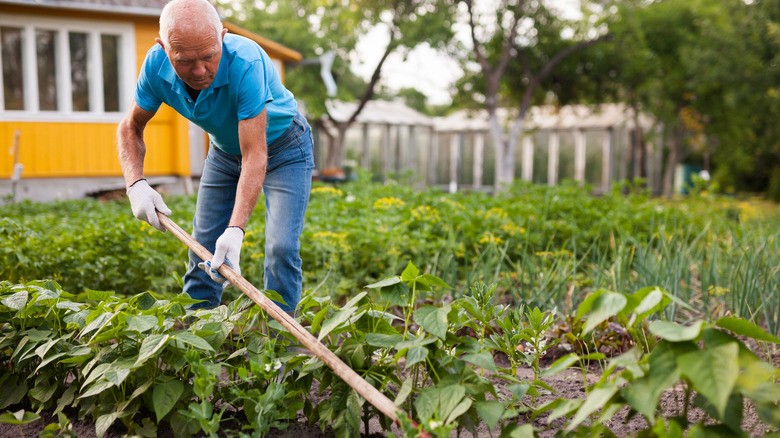How To Stay Active When You Retire
Retirement brings with it a new sense of freedom, and for many people, that means a slower pace. Slowing down isn't necessarily a bad thing, but you should always aim to stay active after you retire because it keeps your body healthy. The Centers for Disease Control and Prevention (CDC) states that regular exercise should be a significant part of your lifestyle because it can slow down and even prevent some health issues associated with getting older.
The good news is even if you haven't been active in years, it is never too late to get started. Moreover, your physical fitness will improve the more you exercise. Start slowly to avoid any injuries, and increase intensity as you become stronger and more fit. If you have any health conditions or concerns, check with your doctor to find out if there are any exercises you should avoid (via National Institute of Aging).
Try different activities to find one that works for you
The CDC recommends that people 65 or older should get at least 150 minutes of moderate activity or 75 minutes of vigorous activity per week. Generally speaking, moderate activity includes brisk walking, pushing a lawnmower, biking, fast dancing, or water aerobics. The National Health Service (NHS) explains that vigorous activities include running, swimming, martial arts, or hiking uphill.
Strength training twice a week is also important. Aside from lifting weights, yoga, pilates, and heavy gardening count as strength training activities (via NHS). You should also work on your balance three times a week to help strengthen your core and help prevent falls. These kinds of exercises include standing on one leg, walking backward, and balancing on a wobble board, per the CDC.
Don't be afraid to try different things. A successful plan involves finding an exercise and routine you like. You may enjoy being part of a group, so finding a gym class or walking group might be just what you need to stay motivated. Keep in mind a plan doesn't have to be elaborate. Walking the dog, home improvement projects, or even volunteering are other options, per Verywell Health.


